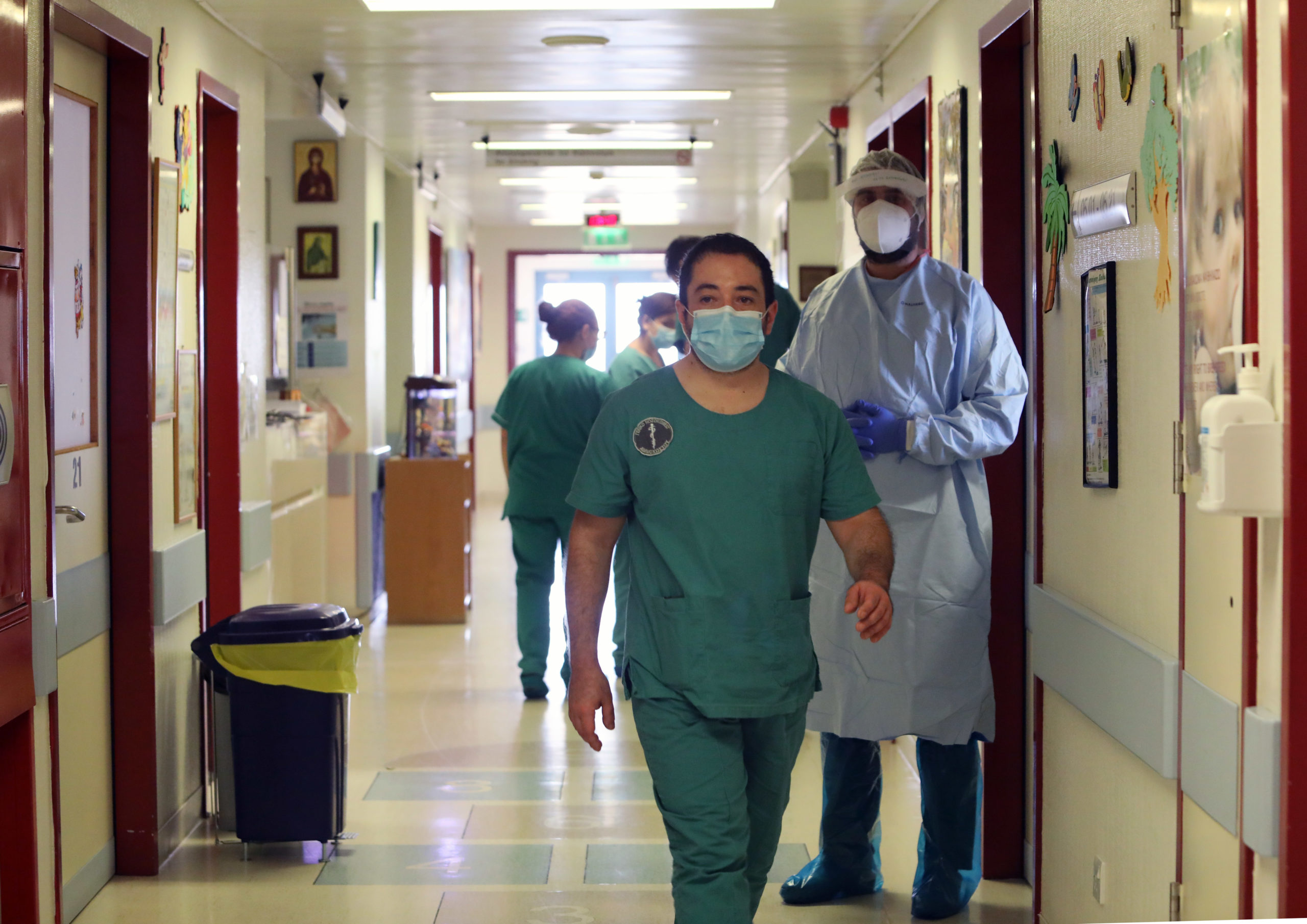Cyprus health authorities on Monday announced two new COVID-19 cases, taking the opportunity to warn the public that they must behave responsibly to defeat the virus.
The two new cases were located among 2,128 coronavirus tests taking the confirmed total to 937 (plus 12 in the British Bases).
One infection was found from testing of 216 repatriated Cypriots, the other positive case was a teacher at a lyceum from 417 tests conducted on students and school staff.
The Education Ministry will announce further details.
Health Ministry advisors said they were satisfied with the low number of cases but were puzzled that there were still infections being detected among repatriated Cypriots and in schools.
Member of the Health Ministry’s Epidemiological Monitoring Unit, virologist Dr Leontios Kostrikis in light of the latest data called the public to be vigilant, especially post-lockdown.
“The strategy of lifting restrictive measures is largely based on individual and collective responsibility. Relaxing measures requires more attention from everyone,” said Kostrikis.
“We want to assure you that all necessary measures are being taken by the state and health protocols are being strictly followed.
The scientific committee is constantly evaluating the situation and is in contact with the political leadership for further action.”
Dr Marios Loizou of the Cyprus State Health Services Organisation said five people are inpatients at Famagusta General, which operates as the reference hospital for COVID-19. One of the patients is in the acute care unit.
Two patients are on a ventilator at Nicosia General Hospital ICU and two more patients are being treated in the same ICU but are breathing without the help of a ventilator.
Since the outbreak on March 9, Cyprus reported zero cases for the first time on 23 May, since then more cases have been recorded.
But scientists are uneasy that people are behaving irresponsibly and not observing social distancing when they venture out.
In the first weekend, since lockdown was eased on free movement, there were scenes of crowded pubs, bars and cafes which reopened last week.
“Since the second phase of the lockdown, a small proportion of the public have taken their eye off the virus.
As much as we want to, it is impossible to return to our normal routine,” said Loizou.
“It is important that what we have learned these 76 days become an integral part of our new daily lives.
Adherence to hygiene rules and social distancing are not just instructions given by experts but are what will lead us safely forward.”










